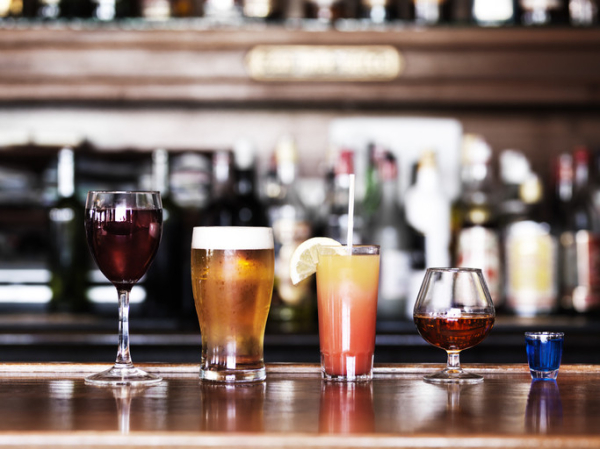 Dementia poses many challenges, both for people struggling with it and for those close to them. It can be hard to witness and cope with common behaviors that arise from illnesses like Alzheimer’s disease, vascular dementia, or frontotemporal dementia.
Dementia poses many challenges, both for people struggling with it and for those close to them. It can be hard to witness and cope with common behaviors that arise from illnesses like Alzheimer’s disease, vascular dementia, or frontotemporal dementia.
Caring for a person who has dementia may be frustrating, confusing, or upsetting at times. Understanding why certain behaviors occur and learning ways to handle a variety of situations can help smooth the path ahead.
What behaviors are common when a person has dementia?
People with dementia often exhibit a combination of unusual behaviors, such as:
- Making odd statements or using the wrong words for certain items.
- Not realizing they need to bathe or forgetting how to maintain good hygiene.
- Repeating themselves or asking the same question over and over.
- Misplacing objects or taking others’ belongings.
- Not recognizing you or remembering who they are.
- Being convinced that a deceased loved one is still alive.
- Hoarding objects, such as mail or even garbage.
- Exhibiting paranoid behavior.
- Becoming easily confused or agitated.
- Leaving the house without telling you, and getting lost.
Why do these behaviors occur?
Inside the brain of a loved one with dementia, picture a wildfire shifting course, damaging or destroying brain cells (neurons) and neural networks that regulate our behavior.
What drives this damage depends on the underlying cause, or causes, of dementia. For example, while the exact cause of Alzheimer’s disease is not known, it is strongly linked to proteins that are either gunking up or strangling brain cells. Someone with vascular dementia has experienced periodic insufficient blood flow to certain areas of the brain, causing neurons to die.
“As dementia progresses, the person loses brain cells associated with memory, planning, judgment, and controlling mood. You lose your filters,” says Dr. Stephanie Collier, a psychiatrist at Harvard-affiliated McLean Hospital.
Six strategies for coping with dementia-related behaviors
Dealing with distressing or puzzling dementia-related behavior can require the type of tack you’d take with a youngster. “Due to declines, older adults with dementia can seem like children. But people are generally more patient with children. You should consider using that approach with older adults,” suggests Lydia Cho, a McLean Hospital neuropsychologist.
- Don’t point out inaccurate or strange statements. “It can make people with dementia feel foolish or belittled. They may not remember details but hold onto those emotions, feel isolated, and withdraw. Instead, put them at ease. Just go with what they’re saying. Keep things light,” Cho says.
- Don’t try to reason with the person. Dementia has damaged your loved one’s comprehension. Attempting to reason might be frustrating for both of you.
- Use distraction. This helps when the person makes unreasonable requests or is moderately agitated. “Acknowledge what the person is saying, and change the activity. You could say, ‘I see that you’re upset. Let’s go over here for a minute.’ And then do an activity that engages the senses and relaxes them, such as sitting outside together, listening to music, folding socks, or eating a piece of fruit,” Dr. Collier says.
- Keep unsafe items out of sight. Put away or lock up belongings the loved one shouldn’t have — especially potentially dangerous items like car keys or cleaning fluids. Consider installing cabinet locks.
- Supervise hygiene routines. The person with dementia might need a reminder to bathe, or might need to have the day’s clothes laid out on the bed. Or you might need to assist with bathing, shaving, brushing teeth, or dressing.
- Spend time together. You don’t have to convince your loved one of your identity or engage in fascinating conversation. Just listen to music or do some simple activities together. It will help keep the person from withdrawing further.
Safety is essential when a person has dementia
Sometimes simple strategies aren’t enough when a loved one has dementia.
For example, if the person frequently tries to leave home, you might need to add child-proof covers to doorknobs, install additional door locks or a security system in your home, or get the person a GPS tracker bracelet.
If the person is frequently upset or even violent, you’ll need to call the doctor. It could be that a new medical problem (such as a urinary tract infection) is causing agitation. “If the agitated behavior isn’t due to a new health problem and is predictable and severe, we might prescribe a medication to help regulate mood, such as an antidepressant or an antipsychotic in cases of extreme agitation or hostility,” Dr. Collier says.
As dementia changes, seek the help and support you need
No one expects you to know how to interact with someone who has dementia. There’s a learning curve for all of us, and it continues even after you get a feel for the situation. “The process keeps changing,” Cho says. “What works today may not work next week or the week after that for your loved one. So keep trying different strategies.”
And get support for yourself, such as group therapy for caregivers and their families. You can also find information at the Alzheimer’s Association or Family Caregiver Alliance.
About the Author

Heidi Godman, Executive Editor, Harvard Health Letter
Heidi Godman is the executive editor of the Harvard Health Letter. Before coming to the Health Letter, she was an award-winning television news anchor and medical reporter for 25 years. Heidi was named a journalism fellow … See Full Bio View all posts by Heidi Godman
About the Reviewer

Howard E. LeWine, MD, Chief Medical Editor, Harvard Health Publishing
Howard LeWine, M.D., is a practicing internist at Brigham and Women’s Hospital in Boston, Chief Medical Editor at Harvard Health Publishing, and editor in chief of Harvard Men’s Health Watch. See Full Bio View all posts by Howard E. LeWine, MD



